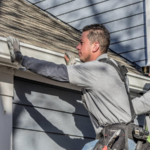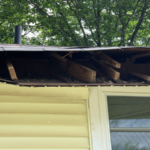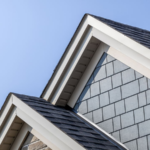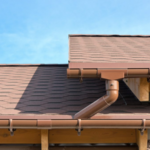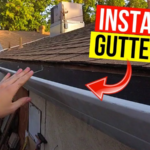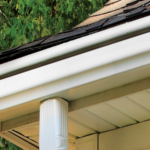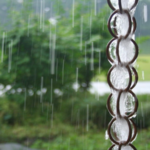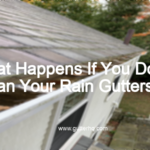If you don’t have rain gutters, water will flow off your roof and down the sides of your house whenever it rains. This can cause serious damage to your home over time, as the water can erode the foundation, rot the wood around your windows and doors, and cause mold and mildew to grow.
Is it OK to not have gutters?
There are a few things to consider when thinking about whether or not to have gutters installed on your home. The first is the climate. If you live in an area with a lot of rainfall, snow, or ice, gutters can help prevent water damage to your home by channeling water away from the foundation. They can also help prevent staining and erosion on exterior walls.
Another consideration is the type of roof you have. If your roof has a lot of slopes and valleys, gutters can help to prevent water from pooling in those areas and causing damage. They can also help to keep debris from accumulating on your roof and causing clogs or leaks.
Finally, you’ll need to think about the cost of installation and maintenance. Gutters can be a bit of a hassle to keep clean, so if you’re not willing to put in the work, they might not be worth the investment.
Ultimately, the decision of whether or not to have gutters installed is up to you. If you think they’ll be beneficial for your home, then go ahead and get them installed. If you’re not sure, you can always talk to a contractor or roofer to get their opinion.
Are rain gutters really necessary?
Most people believe that rain gutters are only cosmetic additions to a home. In reality, rain gutters play an important role in protecting your home from water damage. By directing rainwater away from your home’s foundation, gutters help to prevent flooding and water damage to your basement or crawl space. In addition, gutters can help to prevent soil erosion around your home’s foundation.
If your home does not have gutters, you may be at risk for water damage. When it rains, water will flow down your roof and collect at the base of your home. This can lead to flooding and water damage to your home’s foundation. In addition, the water can erode the soil around your home’s foundation, which can lead to cracks and other damage.
Installing gutters can help to protect your home from water damage. By directing rainwater away from your home’s foundation, gutters can help to prevent flooding and water damage to your basement or crawl space. In addition, gutters can help to prevent soil erosion around your home’s foundation.
Why do some houses not have gutters?
There are a number of reasons why some houses don’t have gutters. One possibility is that the house is new and the builders haven’t installed them yet. Another possibility is that the house is old and the gutters have fallen into disrepair and need to be replaced. In some cases, gutters are simply not installed on certain types of houses, such as those with flat roofs.
How do you handle rain runoff without gutters?
There are a few ways that you can handle rain runoff without gutters. One way is to use a rain barrel. This is a barrel that is placed under a downspout to collect rainwater. The water can then be used for watering plants or other outdoor uses.
Another way to handle rain runoff is to use a French drain. This is a trench that is filled with gravel and has a pipe running through it. The trench is dug around the perimeter of the house. The pipe helps to carry the water away from the house.
You can also use a rain garden. This is a garden that is planted in an area where rainwater collects. The plants in the rain garden help to absorb the water.
Finally, you can redirect the downspouts. This is done by attaching a extension to the downspout. The extension can be directed to a different area of your yard. This will help to keep the water away from the foundation of your house.
Can a house survive without gutters?
A house can survive without gutters, but it is not recommended. Gutters help protect your home from water damage by channeling water away from the foundation and preventing it from seeping into cracks and crevices. They also prevent mold and mildew from growing on the exterior of your home. without gutters, your home is at a greater risk for water damage, mold, and mildew.
Why do Florida homes not have gutters?
There are a number of reasons why Florida homes do not have gutters. One reason is that the climate in Florida is such that gutters are not necessary. The lack of rainfall and the relatively mild temperatures mean that there is no need for gutters to protect the home from water damage.
Another reason why Florida homes do not have gutters is that they are not required by building code. In many parts of the country, gutters are a required part of the home construction process. However, in Florida, gutters are not considered to be a necessary part of the home. This means that builders and homeowners have the option of including gutters on their homes, but it is not a requirement.
The final reason why Florida homes do not have gutters is that they can be a source of problems. Gutters can become clogged with leaves and debris, which can lead to water damage. In addition, gutters can also be a breeding ground for mosquitoes and other pests. For these reasons, many homeowners in Florida choose to forego gutters altogether.
Are gutters a waste of money?
No, gutters are not a waste of money. In fact, they are an important part of your home’s exterior that helps protect your home from water damage. Gutters are installed along the edge of your roof and collect rainwater as it falls, channeling it away from your home. This helps to prevent water from seeping into your home’s foundation or walls, which can lead to serious structural damage.
Do gutters increase home value?
It’s a common misconception that gutters only serve the purpose of keeping water away from your home’s foundation to prevent flooding and water damage. However, gutters play a much larger role in protecting your home, and they can actually increase your home’s value.
Gutters are an important part of your home’s exterior because they direct water away from your home. This is important because water can cause a lot of damage to your home’s foundation, which can lead to cracks and leaks. Water can also damage your home’s siding and trim, and it can even cause your windows and doors to warp. By directing water away from your home, gutters help to protect your home from all of this damage.
In addition to protecting your home from water damage, gutters also help to protect your landscaping. If water is allowed to pool around your foundation, it can kill your grass and plants. It can also wash away topsoil, leaving your plants and trees more susceptible to disease. Gutters help to keep all of this water away from your landscaping, which helps to keep it healthy and looking its best.
Are gutters worth the investment?
Gutters are one of those things that are often taken for granted. They’re not the most glamorous home improvement, but they play a critical role in protecting your home from water damage. Investing in a quality gutter system can save you thousands of dollars in repair costs down the road.
Gutters are installed on the edge of your roof to collect rainwater and direct it away from your home. Without gutters, rainwater would pour off your roof and soak into the ground around your foundation. Over time, this can lead to serious problems like cracks in your foundation, mold and mildew growth, and even flooding in your basement.
Gutters also help to protect your landscaping. By directing water away from your home, gutters can help you avoid pooling water around your foundation and saturating your landscaping. This can prevent serious problems like foundation damage and soil erosion.
Investing in a quality gutter system is one of the best ways to protect your home from water damage. If you’re unsure about which system is right for your home, contact a local contractor for more information.
Conclusion
If you don’t have rain gutters, you may end up with water damage to your home. Water can seep into your home through the roof or walls, causing mold and mildew to grow. It can also damage your foundation and erode your landscaping. In addition, you may also experience mosquito problems and flooding in your basement.

